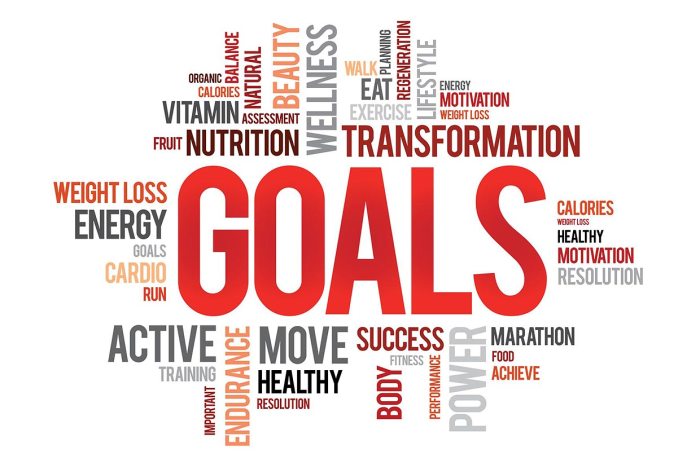Health and Fitness Goals: Ready to crush your fitness targets? Let’s dive into setting SMART goals, creating killer workout plans, nailing your nutrition, and tracking progress like a boss!
Setting Health and Fitness Goals

Setting health and fitness goals is crucial for achieving success in improving overall well-being. By following the SMART criteria, individuals can create goals that are specific, measurable, achievable, relevant, and time-bound.
Importance of SMART Goals
- Specific: Clearly define what you want to achieve, such as losing weight or running a certain distance.
- Measurable: Set goals that can be tracked and quantified, like aiming to workout for a certain number of minutes each day.
- Achievable: Make sure your goals are realistic and within reach to maintain motivation.
- Relevant: Ensure your goals align with your overall health and fitness objectives.
- Time-bound: Set deadlines to create a sense of urgency and focus.
Short-term and Long-term Goals
- Short-term goal: Completing a 30-minute workout three times a week for a month.
- Long-term goal: Running a half-marathon within a year.
Tracking Progress and Staying Motivated
Setting goals allows individuals to monitor their progress, celebrate achievements, and make adjustments as needed. By having clear objectives, individuals can stay motivated and focused on their health and fitness journey.
Creating a Workout Plan

To achieve your health and fitness goals, it’s essential to design a well-rounded workout plan that includes cardio, strength training, and flexibility exercises. This will help you improve your overall fitness levels, build muscle, burn calories, and increase flexibility.
Balanced Workout Plan
- Include at least 150 minutes of moderate-intensity cardio per week, such as brisk walking, running, or cycling.
- Incorporate strength training exercises at least 2-3 times a week to build muscle mass and increase metabolism.
- Don’t forget to include flexibility exercises like yoga or stretching to improve range of motion and prevent injuries.
Significance of Rest Days
Rest days are crucial in a workout routine as they allow your muscles to recover and repair. Overtraining can lead to burnout, injuries, and decreased performance. Make sure to schedule rest days in your workout plan to give your body the time it needs to rest and rejuvenate.
Adjusting Workout Plans
- Customize your workout plan based on your individual fitness level and goals. Start slowly if you’re a beginner and gradually increase intensity as you progress.
- Listen to your body and make adjustments as needed. If you’re feeling fatigued or sore, take a break or modify your workout to prevent injuries.
- Consult with a fitness professional to help you create a personalized workout plan that aligns with your specific needs and goals.
Nutrition and Diet
Proper nutrition plays a crucial role in achieving health and fitness goals. Fueling your body with the right nutrients can help improve performance, aid in recovery, and support overall well-being.
Importance of a Balanced Diet
A balanced diet is essential for maintaining good health and reaching fitness goals. It should include a variety of foods from all food groups to ensure you are getting the necessary nutrients.
- Eat plenty of fruits and vegetables for vitamins, minerals, and fiber.
- Incorporate lean proteins like chicken, fish, tofu, and legumes for muscle repair and growth.
- Choose whole grains such as brown rice, quinoa, and oats for sustained energy.
- Avoid excessive consumption of processed foods, sugary drinks, and unhealthy fats.
Meal Planning and Prepping Tips, Health and Fitness Goals
Meal planning and prepping can help you stay on track with your fitness goals by ensuring you have nutritious meals readily available.
- Batch cook meals in advance to save time during the week.
- Include a balance of proteins, carbohydrates, and fats in each meal.
- Pack healthy snacks like nuts, fruits, or Greek yogurt to avoid unhealthy choices when hunger strikes.
- Stay hydrated by drinking plenty of water throughout the day.
Monitoring Progress: Health And Fitness Goals
Monitoring progress is a crucial aspect of achieving health and fitness goals. By tracking your progress, you can stay motivated, make necessary adjustments, and ensure you are on the right path towards success.
Different Ways to Track Progress
- Keeping a Workout Journal: Write down your exercises, sets, reps, and any notes about how you felt during your workout. This can help you see improvements over time and identify areas for growth.
- Using Fitness Apps: There are countless apps available that can help you track your workouts, nutrition, and progress. These apps often provide insights and data that can keep you motivated.
- Measuring Body Metrics: Tracking measurements like weight, body fat percentage, and muscle mass can give you a more concrete view of your progress. Remember, progress is not just about what the scale says!
Importance of Regular Check-Ins
Regular check-ins are essential to evaluate how you are progressing towards your goals. By checking in regularly, you can identify any areas where you may need to adjust your approach or set new goals. This helps you stay accountable and stay focused on your health and fitness journey.
Benefits of Progress Tracking
- Staying Accountable: When you track your progress, you are more likely to stick to your plan and make healthier choices.
- Making Necessary Changes: By monitoring your progress, you can see what is working and what is not. This allows you to make adjustments to your workout routine, diet, or goals as needed.
